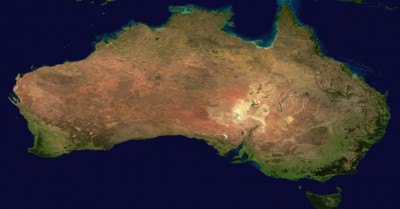This activity supports all children to build a personal sense of responsibility for respecting the Country/place around them, all the while building an awareness and appreciation of Aboriginal and Torres Strait Islander contributions to sustainable Land management.
Materials Needed:
- ABC Play School episode, Acknowledgement of Country
Then, use this episode as a meaningful stimulus for exploring the following questions and ideas for class action:
- What is special about the lands, seas and skies that you live and learn on? Are there mountains, oceans or rivers? Is there rainforest or bushlands?
- Who are the Traditional Custodians of the Land on which you live and learn? What do you think might be some important things about caring for Country that we can learn from local Traditional Custodians?
- In the episode, one of the children from the service on Dharawal Country explained what caring for Country means to him. What does caring for Country/place mean to you? Why do you think it’s important we acknowledge, connect with and look after Country/place?
In supporting children to understand and respond to the above questions, you might like to carry out the ‘My Acknowledgement of Country’ exercise to foster a meaningful connection to the Country/place your service stands.
- What does ‘home’ or ‘place’ mean to you and your family and community?
- Why is it important to connect with and care for Country/place?
- What can we learn from Aboriginal and Torres Strait Islander peoples, histories and cultures about caring for Country?
- What can you and your early learning service do to care for Country?
In acknowledging the importance of Country/place, it is simultaneously important to instil in children an active sense of responsibility of how they can proactively care for Country. For example, in the Play School episode, Kiya goes on a walk and looks after the animals she comes across.
- What are some of the impacts of leaving rubbish on the ground?
- Why is it important to clean up places that you live on, learn on, or have visited?
- What are some things you and your early learning service can do to look after the environment and all of its plants and animals?
Hints and Tips:
- Caring for Country/place and looking after the lands, seas, waterway and skies on which we live and learn is everyone’s responsibility. It’s important to acknowledge that there are many different ways to take and share responsibility for caring for Country that may seem like small steps, but which hold big significance. Learning from Aboriginal and Torres Strait Islander peoples in your local area about the Country/place on which your early learning service stands will help foster a sense of being, belonging and becoming for all children, alongside a deeper awareness and appreciation of how the longstanding and continuing sustainability practices of Australia’s First Peoples can help to address some of the global environmental questions and challenges – such as climate change – of our current times.
Reference:
Caring For Country, Narragunnawali Reconciliation In Education



